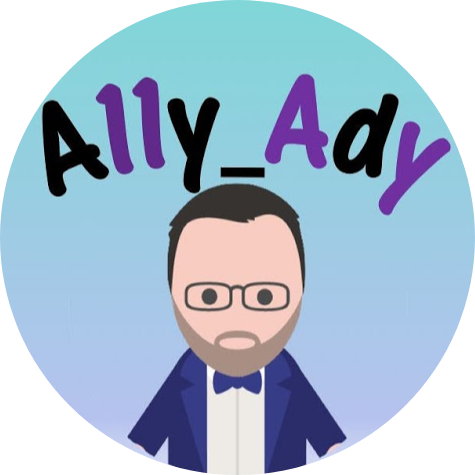The 4th edition of the free test conference held
in Leeds took place at the Wharf
Chambers in Leeds on the 9th of May. The website is here. The two track conference had speakers, workshops and panels and was well attended by both developers and testers. Some of the conference was filmed so hopefully some of the sessions will be available at some point.
Chambers in Leeds on the 9th of May. The website is here. The two track conference had speakers, workshops and panels and was well attended by both developers and testers. Some of the conference was filmed so hopefully some of the sessions will be available at some point.
Below is the schedule and notes on the sessions I attended
and a little feedback gathered from discussions.
Track 1 – Hipsters
09.30 – What not to
do, a guided tour of unit testing – Colin Ameigh
Colin took us on a journey through unit tests using PHP as
the base of the testing pyramid. In his
experience a lot of unit tests were rotten and not maintained or even unit
tests at all. He pointed to the single
responsibility principle being absent as the main culprit. As a minimum they should run everywhere and also
in isolation. Another insight was that
where TDD was used, the third step of ‘refactor’ was often missed meaning over
time the tests themselves lost their value.
10.00 – Testing the
waters – Rosie Dent-Brown
While I didn’t attend there was a ‘buzz’ around Rosie’s use
of Agile at home and assigning ‘roles’ to those around her! Sound fascinating!
11.00 – Colleagues to Community – Ady Stokes
My talk on our journey building a test community included some of the test challenges we had done sharing our experience
to hopefully inspire others and encourage them to come and help us grow. The title has a link to the deck on
SlideShare and here's the link to the talk on YouTube.
13.00 – TDD using Excel – Dave Turner
14.30 – Panel –
Generalising Specialists
This was an interesting discussion based on both T and Pi ("π")
shaped testers. While the discussion
covered many things, below I’ve tried to summarise the key points made.
- Generalising skills can make you more valuable to a company
- Generalisation shouldn’t be at the expense of your ‘deep’ skill
- The role of ‘pure’ specialist is still valuable (E.g. Penetration; Performance; UX/UI; Accessibility)
- ‘Pure’ specialist as a consultant or service was expressed as the most powerful use
Slightly away from the core topic but I believe still
valuable to share I think, was the value a tester adds to a team or
project. When involved through the whole
process, from ideas to delivery; the statement, ‘testers are the glue that
binds the stages together’ was expressed.
I thought this was an interesting metaphor along with, ‘testers can also
be the conscience of the team’ making me thing about my role in a different
way.
15.30 – Defend the Indefensible & PowerPoint Karaoke
This was an interesting idea to say the least. An ‘indefensible’ statement was put up on the
screen and the victim, volunteer had 30 seconds to defend it. As an example, one of the statements was;
‘Testing is dead and pointless as everything valuable can be checked by
automation and users!’
Track 2 – Nerds
09.30 – Docker as a tool for testers – Serena Wadsworth
10.00 – Power of
pairing – Lee Grubb
Lee offered us his experience of the power of pairing. He went through the traditional techniques of
set up and Driver/Navigator roles. After
explaining the benefits through some of his experiences he explained some of
the other types of pairing including Strong Pairing. This is where the navigator explains their
ideas and the driver interprets. To
understand what your thinking so well you can bring it to life through someone else
I thought was a powerful tool. Although
there are lots of styles and combinations, he mentioned dev/dev; dev/ tester;
dev/DBA amongst others, his final piece of advice was not to limit yourself and
experiment with what works for you.
11.00 – Testing is DevOps – Alex
13.00 – Testing
without Testing – Algirdas Rabikauskas, Kristina Valiune and Peter Ferguson
This workshop sought to show us some of the exercises they
had done in their peer community. The
time was split into two challenges, the first being to identify an object
through clues; Or, ‘understand requirements’.
This took the form of being given a single word, the premise that a
‘rock star’ had a requirement / rider for ‘something’. You had three minutes to come up with
questions and one minute with their agent who could only answer yes or no. Our word was ‘stick’ and after a couple of
rounds where we established it was made of wood, 30 cm long, narrow and
cylindrical we finally reached drum stick.
The second challenge was spot the difference with a
twist. There were three duplicated
images of a city bridge, paragraph and dice grid. For two of those the second image had be
inverted or turned upside down. We chose
a method of peer review (code review) by assessing an image individually, then
passing it on. After the disappointing
news that we had missed one difference, we mobbed the remaining image until we
found the final item.
In summary Algirdas said that these games were helpful in
reducing assumptions, critically thinking about problems and developing team
techniques and bonding. Having found the
activities both challenging and fun and enjoyed the interactions with my new
found team I’d have to agree with those comments.
14.30 – Panel – Continuous Delivery
15.30 – Games including Dysfunctional Scrum, DevOps ball
game, TestSphere

